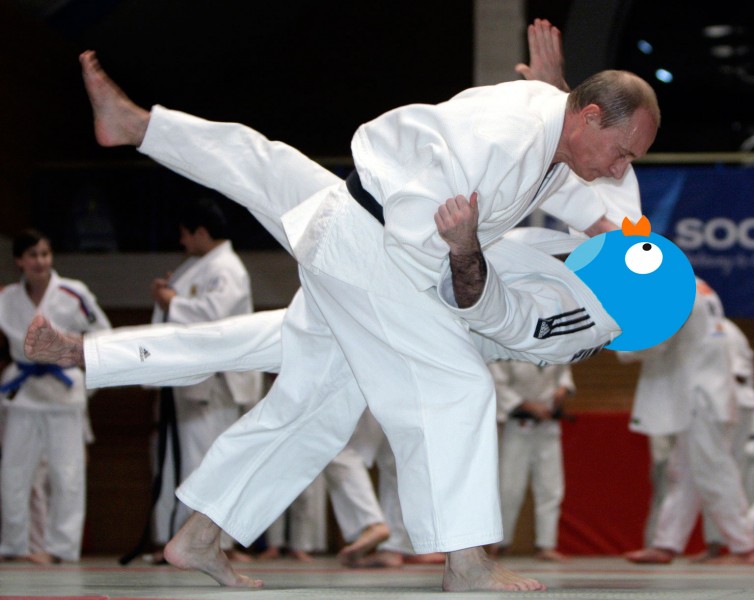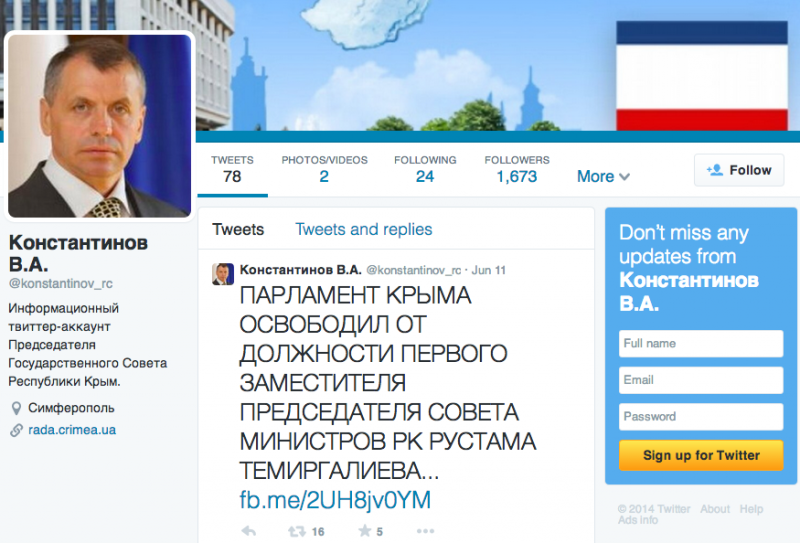
The Kremlin seems eager to show Twitter who's boss. Images mixed by author.
Twitter’s head of global public policy, Colin Crowell [1], is traveling [2] to Moscow next week to sit down with Russia’s federal communications agency, Roscomnadzor. Ahead of that visit, Roscomnadzor claims to have forced Twitter to delete a fake account posing as Crimean politician Vladimir Konstantinov [3]. “Attempts to impersonate a famous person on social networks in order to mislead audiences is qualified as an illegal use of personal data and a violation of the laws of the Russian Federation,” Roscomnadzor declared in a public statement [4] on June 20.
Twitter has indeed deleted the account in question, @konstantinov_rc [5], which appeared in late April 2014, and posted just 78 tweets and attracted only 1,673 followers in its brief existence. Unlike the RuNet’s many popular parody accounts [6], Konstantinov’s doppelgänger on Twitter did not attempt to satirize or entertain. The account’s tweets were largely anodyne, like posts sharing information about personnel changes, government statistics, and holiday preparation in Crimea.
Though Roscomnadzor’s press release implies that Twitter was compelled to obey Russian law, the fake Konstantinov account was in clear violation of Twitter’s own internal policy on “parody, commentary, and fan accounts [8],” which forbids impersonations without clear statements acknowledging as much in a user’s avatar, account name, and bio. Last month, Russian officials also claimed a victory in the regulation of Twitter, which agreed to block [9] an account belonging to a Ukrainian ultra-nationalist group. (Twitter’s compliance was extremely limited, however, as users can easily circumvent the restriction by changing their accounts’ location settings.)
Given the approaching meeting between Twitter and Russia’s chief censorship outfit, it appears that Moscow is trying to convey that Internet giants like the world’s most popular microblogging service must conform to Russian sovereignty. This message is particularly easy to send, of course, when Russian laws reproduce Twitter’s own Terms of Service.
